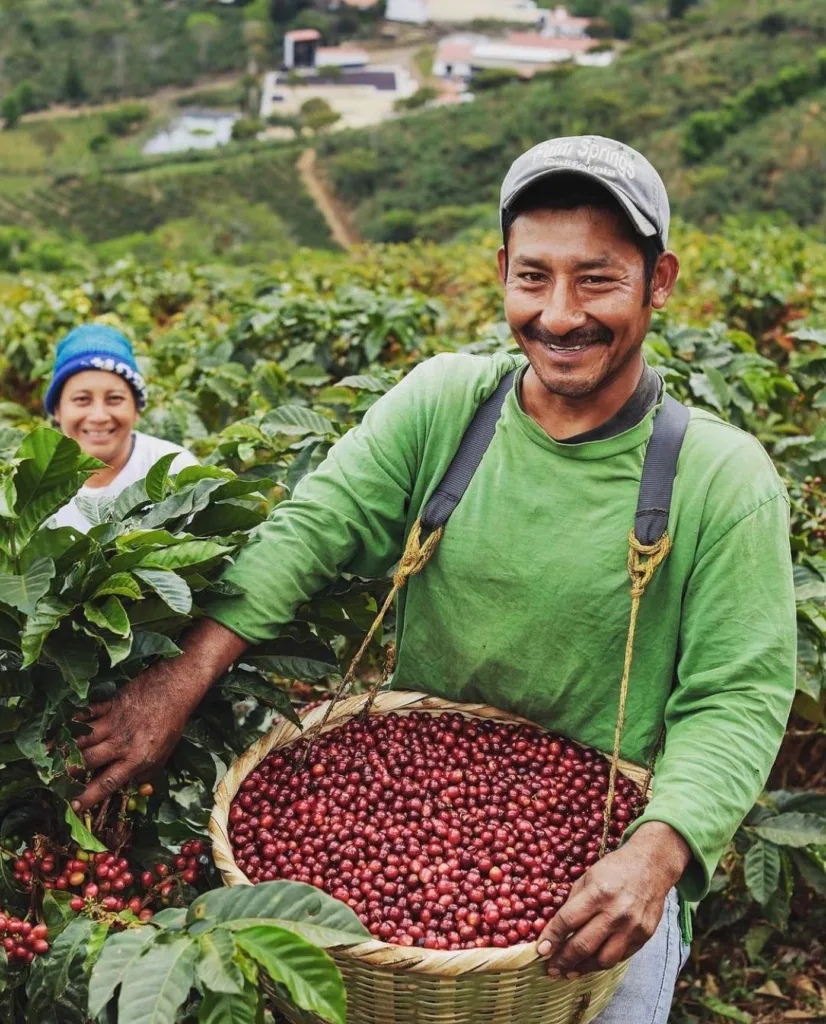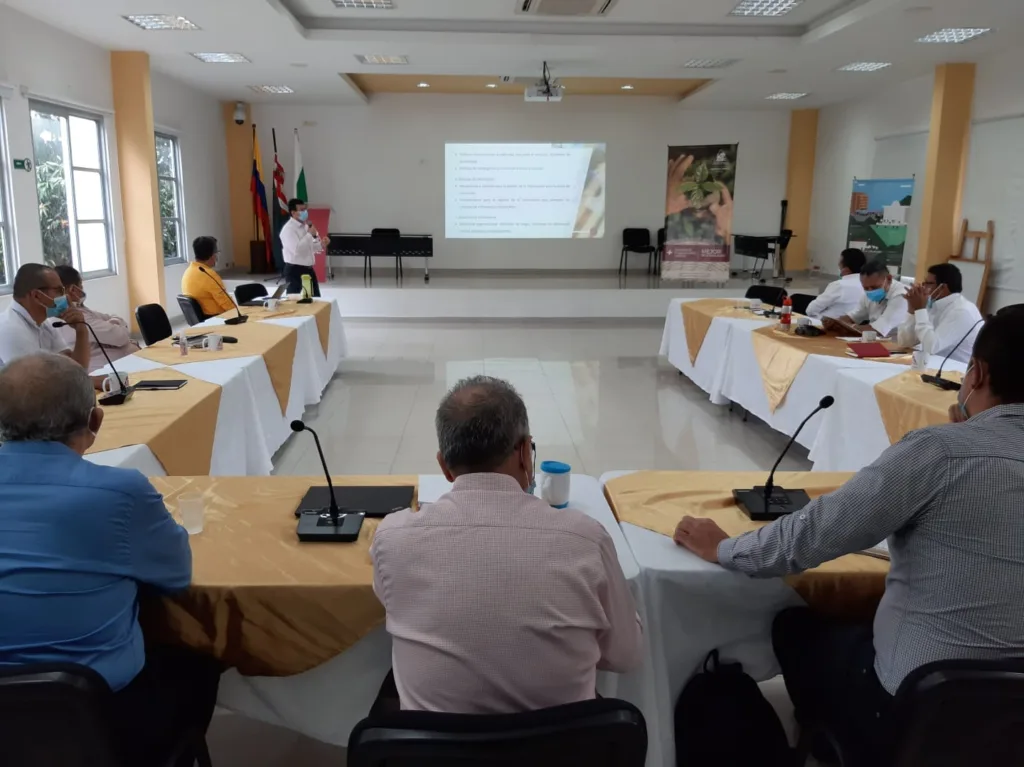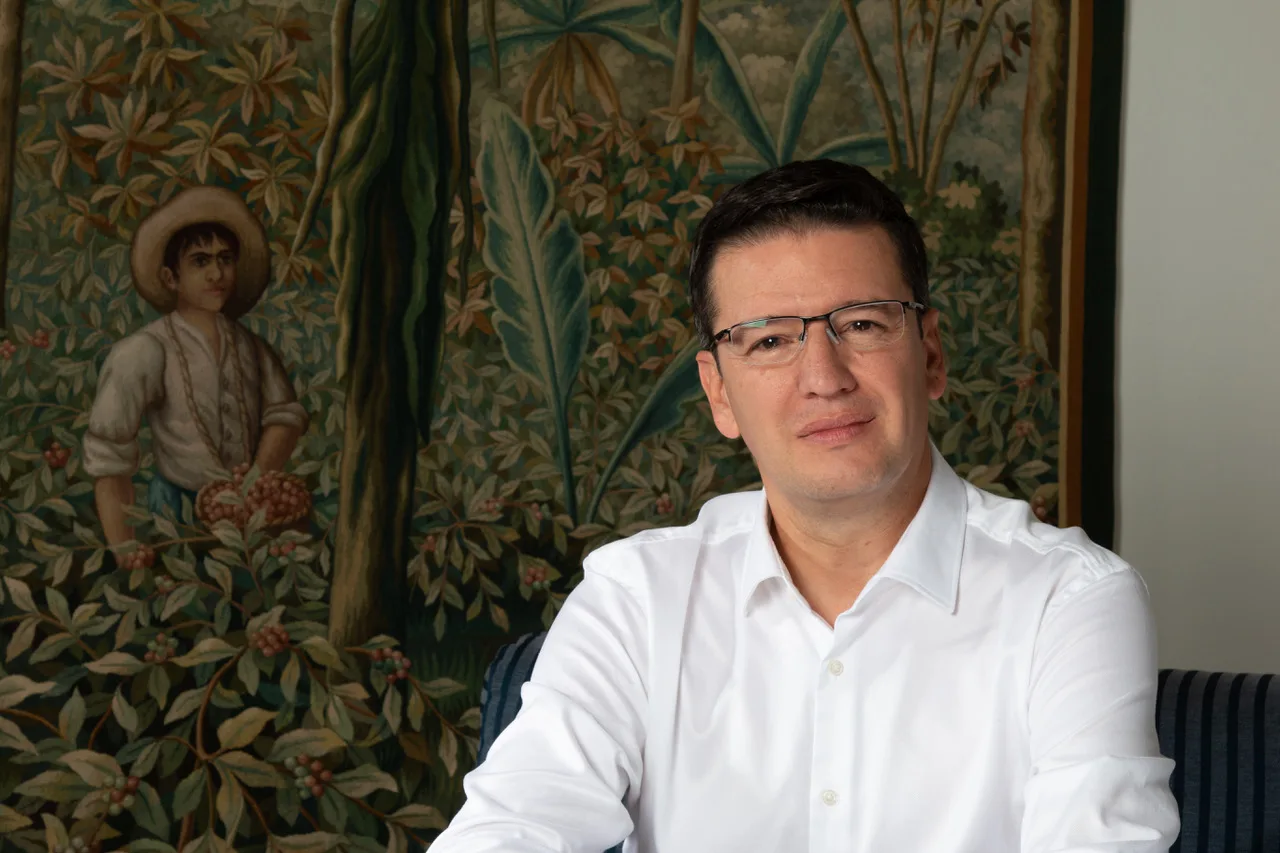In an exclusive interview for Diario del Huila, Germán Bahamón, an agro-industrial production engineer, and a shortlist for the general management of Fedecafé, pointed out that the guarantee of purchase and improvement of the infrastructure, tied to industrial and quality improvements, will be his bets.
Huíla Newspaper, foreground
By: Gloria Camargo
Continuing with the plan drawn up by the coffee growers themselves in their National Congress but at the same time optimizing production processes to reach international markets, in addition to strengthening coffee grower cooperatives to mitigate the risks of future purchases, are some of the letters of the agro-industrial production engineer, Germán Alberto Bahamón Jaramillo.
According to the Huilense, it also seeks to optimize the income of producers by reducing costs, achieving the improvement of infrastructure in housing and tertiary roads. He also emphasized industrialization, with producers as partners of threshers.
Bahamón Jaramillo has a specialization in strategic marketing from the Colegio de Estudios Superiores de Administración (CESA) and in executive marketing from the Kellogg School of Administration, Northwestern University, in Chicago.
His resume highlights his leadership in the public and private sectors, with more than 20 years of experience in general management positions in Ecuador, Central America and the Caribbean, Colombia and Mexico, in some of the most recognized companies on a global scale. such as Apple, Sony Ericsson, Sony Corp, Kimberly Clark and Alquería, as well as experience working with disadvantaged communities and formalizing land.
First of all, what does it mean for a Huilense to be on the shortlist for the management of the National Federation of Coffee Growers?
I am very proud to be a representative of Huila to the management, this is thanks to the work that the Huila Departmental Committee has done and also the representative of the Steering Committee, Ruber Bustos, to fight that Huila deserves, due to the representativeness of the last 10 years, where it has become the department with the highest production and best quality. So let’s say that they have achieved that we are on the list and that the department of Huila has representation and has the opportunity to reach management.
What are the proposals with which you hope to reach management, and if they arrive, execute?
There are three axes in which I have planted the proposals, although it is true that there are many actions that I have been discussing with the Departmental Committees, there are three main ones. The first is the purchase guarantee.
It is very clear that the agricultural line of coffee is the only one in Colombia that offers a purchase guarantee, and that purchase guarantee must be strengthened by implementing a reengineering of cooperatives and associability, which is what allows us to have more of 500 municipalities with direct attention and with the possibility of purchasing, where the Colombian coffee grower in Colombia has the possibility of buying it at a fair price when their load comes out and we cannot lose the incentive. Working with cooperativism and associativity.
What is the second point?
It is the credit, it is not something hidden. When we reached 14 million bags in production in Colombia, it was supported by the Rural Capitalization Incentive, which is very important, also where the Minister of Finance, José Antonio Campo, with whom we have a pleasant coincidence, was its creator. So we will work hand in hand with the government to implement, with their support, the policy with the ICR, and also look for credits that have cup coverage, so that we can not only include new hectares in coffee cultivation, but also to make the renewal of our capital, which is something so important and that for years we have stopped being, we have stopped meeting the goal.
Third, what is the stake?
The third point is infrastructure. The government of President Gustavo Petro has the firm intention of working on tertiary roads and rural housing, we want, on the issue of coffee-growing housing and tertiary roads, the Departmental Committees to be that executing hand, that execution tool that the Government in 15 regions of the Colombian geography to make this implementation. In addition, from the coffee point of view, we will look for the regional industrialization infrastructure.
Why is important the regional industrialization infrastructure?
In Huila there are more than 430 coffee brands, I have one of them, but what we do not have is support in this process from the Federation and I think it is important that all of us who have wanted to leave the farm in some way the cup, we have the accompaniment of the most important and knowledgeable entity of Colombian coffee growing, and we have the possibility of industrializing in the regions. To industrialize is that we have roasting, tasting and barista, that we have the possibility of what also accompanies us in the packaging because all the brands that we are seeing are brands that basically have the same model and a sticker. What we must do is first ensure a very good roast and two, have good packaging, with which any Colombian and Huilense coffee grower, for example, could have support from the Federation in their coffee venture.

Based on your work with the Café Zuluaga brand, what points would you consider to improve or strengthen in coffee farming?
I do not find shortcomings, I find opportunities, and as a small coffee farmer I have been talking with the Committees where it is established that Cenicafé’s accompaniment is very important because there is no entity, not even in nearby countries, that has so much knowledge about genetics. coffee maker, then you have to work closely with them to be able to find those cup profiles that each of the regions can generate and promote. In addition to that, I definitely don’t know if all the readers of Diario del Huila know it, but we coffee growers take at least three and a half years to get our first production out, to have the possibility of transforming it and while we make the chapola, the seedbed, we sow, and the first two years of the sapling pass for the first harvest, but when we get to roasting, all the work can be damaged, because this is a very scientific issue in its curve to be able to highlight the aromas and flavors. If we don’t know how to make a roast, all the work of the coffee grower can be lost, that is, there we have a critical issue where we must accompany the producer.
What has been your experience in this regard?
I have had to take my Café Zuluaga to Bogotá where a master roaster, who has the ability to show me, based on my seed and my parchment coffee, what the roasting curve should be to highlight the best attributes of the product, and I believe that this It is an exercise that must be done in each of the regions. Accompany coffee growers who want to take that step in the marketing chain and the transformation chain in general.
With reference to the issue of political inclusion in this trade union issue, what do you think?
That it is a sectoral issue, a private issue of the National Federation of Coffee Growers that ensures the prosperity of 540,000 coffee-growing families. So it is very important that everyone understands that although it is true, I am very pleased because I have received support from the entire political spectrum in the department of Huila, but this is an issue that is outside of politics, that has nothing to do with it. What we do have is a cordial relationship and harmonization of social policies with the National Government, and we must work hand in hand but regional politicians do not have any interference at this time, but I thank you all for your demonstrations of support.
What would you say to the coffee growers of Huila?
I think that my best letter of introduction, beyond my corporate journey and my professional experience, is the coffee sensibility. I am a coffee grower who wants to work with the coffee growers and in that order of ideas being from Huila, what is the department that has been evolving the fastest in production, I have felt firsthand, in my own skin, the ravages of agriculture but also I have enjoyed coffee farming. So based on this understanding of coffee cultivation, I want to accompany all the coffee growers in the task of growing our union and making it increasingly important, being the first line of the Gross Domestic Product of the country, but that they also understand that I will work from the forest to foreign trade.

